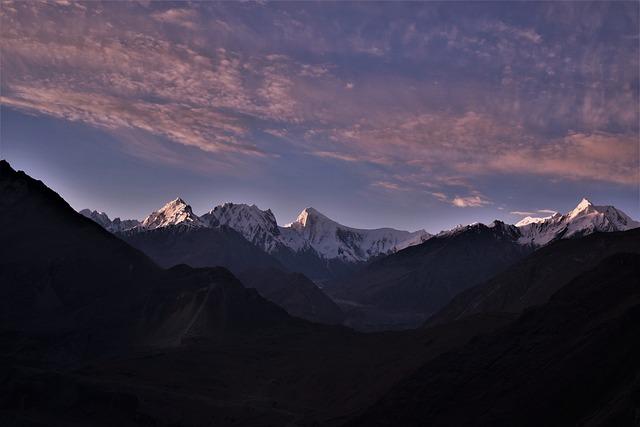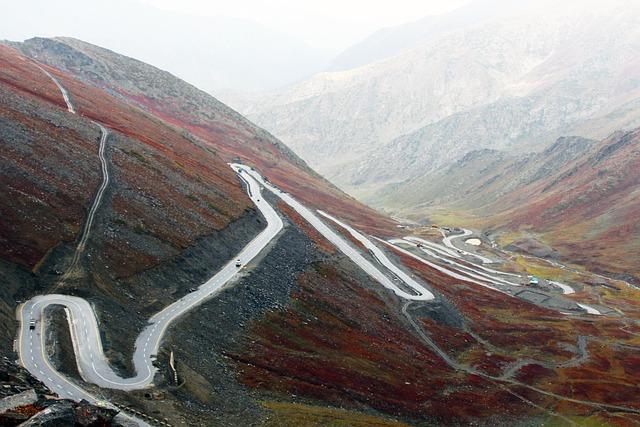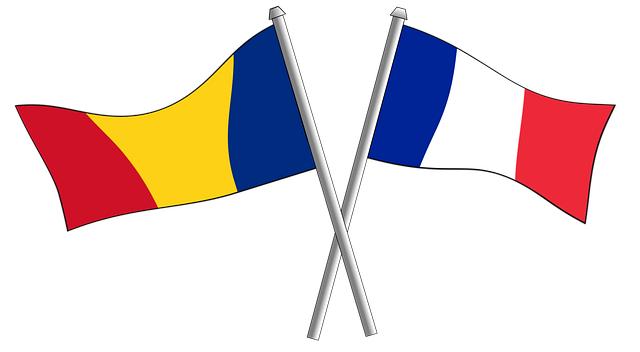As the sun rises and sets over the intricate tapestry of global politics, certain nations emerge as pivotal players on the world stage. Among them, Pakistan stands as a complex and dynamic force, shaped by its historical legacies, regional alliances, and strategic ambitions. With its unique position at the crossroads of South Asia, Central Asia, and the Middle East, Pakistan finds itself entwined in a web of geopolitical narratives that have far-reaching implications for global stability and security. This article delves into the multifaceted role of Pakistan in contemporary global affairs, exploring its partnerships, challenges, and the aspirations that drive its foreign policy. From navigating power dynamics with neighboring giants to addressing internal socio-economic issues that influence its international posture, we embark on a journey to unravel the intricate threads of Pakistan’s influence in an ever-evolving geopolitical landscape.
Exploring Pakistans Strategic Alliances in a Changing Global Landscape
As Pakistan navigates the complexities of a rapidly evolving geopolitical environment, its strategic alliances have become an essential part of its foreign policy framework. The country’s relationships with major global players like China, the United States, and Russia are characterized by a multidimensional approach, reflecting the shifting balance of power in the region. China’s Belt and Road Initiative (BRI) serves as a cornerstone for Pakistan’s economic strategy, enhancing connectivity and fostering investments that are crucial for its development goals. Additionally, closer military cooperation with Beijing underscores Pakistan’s commitment to bolstering its defense capabilities amid regional tensions.
Simultaneously, Pakistan’s relationship with the United States remains complex, influenced by security concerns and regional dynamics. The evolving nature of this partnership can be viewed through key elements such as:
- Counterterrorism Efforts: Both nations work together to address shared security threats.
- Trade and Investment: Efforts are underway to enhance bilateral economic ties, providing mutual benefits.
- Regional Stability: Collaboration in Afghanistan remains a focal point for U.S.-Pakistan relations.
In response to these alliances and their impact on its global standing, Pakistan is also looking towards fostering relationships with other regional players, such as Turkey and Iran, in efforts to diversify its partnerships and enhance its stature on the global stage. The interplay between these alliances and domestic considerations paints a picture of a nation at a geopolitical crossroads.

The Impact of Regional Conflicts on Pakistans Diplomatic Position
The intricate web of regional conflicts surrounding Pakistan has played a pivotal role in shaping its diplomatic landscape. As tensions simmer between neighboring India and Pakistan, particularly over the Kashmir issue, Islamabad’s foreign relations often oscillate between engagement and confrontation. The proliferation of militant groups and the ongoing struggle in Afghanistan have further complicated these dynamics, compelling Pakistan to navigate its alliances carefully. Additionally, Pakistan’s strategic location has positioned it as a key player in the rivalry between global powers, particularly China and the United States, which has had a profound impact on its diplomatic strategies. By balancing these relationships, Pakistan aims to bolster its sovereignty while addressing internal security concerns and regional stability.
Moreover, the recent shifts in geopolitical alliances, driven by conflicts in the Middle East and Central Asia, have necessitated a re-evaluation of Pakistan’s foreign policy. The country must not only respond to immediate threats but also anticipate long-term implications of shifting allegiances. Key challenges include:
- Humanitarian Crises: Humanitarian impacts from regional conflicts often spill over into Pakistan, necessitating responsive diplomacy.
- Economic Sanctions: The possibility of economic sanctions as a result of regional alliances can hinder development and diplomatic engagement.
- Energy Security: Access to energy supplies is increasingly crucial, influenced by conflicts in neighboring regions, driving Pakistan to pursue alternative partnerships.
To illustrate the evolving dynamics, the following table highlights key conflicts and their impact on Pakistan’s diplomatic position:
| Conflict | Impact on Pakistan |
|---|---|
| Kashmir | Strained relations with India, fostering reliance on China. |
| Afghanistan | Insecurity spillover, complicating U.S. relations. |
| Middle Eastern Tensions | Shifts in alliances affecting trade and investment. |

Economic Opportunities and Challenges: Pakistans Participation in Global Trade
Pakistan stands at the crossroads of economic potential and geopolitical complexity, presenting a unique landscape for global trade engagement. As the country seeks to bolster its economy, several opportunities arise through its strategic position in South Asia. By leveraging its access to numerous trade routes, including the China-Pakistan Economic Corridor, Pakistan can enhance its role as a key transit hub. This connectivity can facilitate increased exports in sectors such as agriculture, textiles, and manufacturing, targeting not just regional but also global markets. Furthermore, international partnerships, as seen in initiatives like the ASEAN trade agreements, can open avenues for enhanced trade relations and foreign investments.
However, Pakistan also faces distinct challenges that could hinder its navigation in the global trade arena. Despite its potential, issues such as political instability, economic volatility, and infrastructural deficits pose significant obstacles. Moreover, competition from neighboring economies can dampen growth prospects. To effectively address these challenges, Pakistan must focus on several critical areas:
- Policy Reform: Streamlining trade policies to foster a business-friendly environment.
- Infrastructure Development: Investing in logistics and transportation to enhance connectivity.
- Partnerships: Strengthening alliances with other nations to diversify trade options.
- Innovation: Encouraging technology adoption to modernize traditional sectors.

Enhancing Soft Power: Cultural Diplomacy as a Tool for Global Influence
Cultural diplomacy plays a pivotal role in shaping perceptions and fostering relationships in an increasingly interconnected world. As nations navigate complex geopolitical landscapes, the exchange of culture, art, and ideas becomes a powerful means of influence. For Pakistan, leveraging its rich heritage, diverse traditions, and vibrant arts can create pathways for dialogue and understanding across borders. The nation boasts a wealth of assets, including:
- Historical Sites: Unique archaeological treasures like Mohenjo-Daro and Taxila offer insights into ancient civilizations.
- Music and Art: A blend of regional sounds and artistic expressions that resonate globally, reflective of its cultural diversity.
- Literature: Renowned poets and writers whose works bridge cultural divides and highlight shared human experiences.
By strategically promoting these cultural assets, Pakistan can enhance its soft power, establishing deeper connections with international audiences. Engaging programs such as cultural exchanges, educational partnerships, and art exhibitions can serve as conduits for conveying the nation’s narrative while countering misconceptions. To illustrate this, the following table highlights possible cultural initiatives that can propel Pakistan’s diplomatic goals:
| Initiative | Objective | Potential Impact |
|---|---|---|
| Cultural Exchange Programs | Foster mutual understanding through shared experiences | Strengthened international relationships |
| Art Exhibitions | Showcase local talent and heritage | Boosted tourism and cultural appreciation |
| Literary Festivals | Invite global authors for cross-cultural dialogue | Enhanced visibility of Pakistani literature |
In Summary
As we draw the curtain on our exploration of Pakistan’s intricate role in the tapestry of global affairs, it becomes evident that this nation’s geopolitical landscape is anything but straightforward. From its strategic positioning at the crossroads of South Asia, Central Asia, and the Middle East to its historical ties and evolving partnerships, Pakistan stands as a linchpin in the ever-evolving dialogue of international relations.
The challenges it faces, interwoven with opportunities, paint a picture of a country seeking to assert its influence while contending with the complexities of regional dynamics. Whether it be through initiatives aimed at economic development, diplomatic engagement, or security collaboration, Pakistan’s actions will undoubtedly continue to reverberate across the global stage.
As we look to the future, one thing is clear: understanding Pakistan’s multifaceted role is essential for anyone interested in the intricate dance of power, cooperation, and conflict that defines our world. In this fluid geopolitical environment, where alliances shift and new narratives emerge, Pakistan’s journey serves as a reminder that navigating international relations requires not only strategy and vision but also an appreciation for the historical and cultural legacies that shape our interconnected destinies. the story of nations is not just about borders and policies; it’s about people, aspirations, and the collective quest for a more stable and prosperous world.



